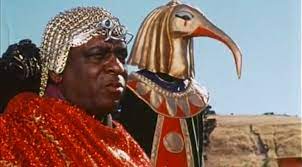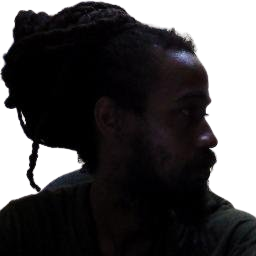
Jamaica, a small island nation in the Caribbean, is known
worldwide for its music, food, and unique culture. Jamaica is a cultural super state But what if Jamaica
was actually a colony of Africa? Jamaica should be a colony of Africa. For me Jamaica is a colony of Africa, Afro beats dominating the island is proof of the pudding! It may sound like a far-fetched idea or
even a joke, but let's examine why this concept needs to be explored
beyond just humor. It is a vision that some may find radical, but it is one that we should consider and work towards making a reality. The idea of Jamaica being a colony of Africa is not about colonization in the traditional sense, but rather a reclamation of our ancestral heritage and a recognition of our place within the African diaspora.
Jamaica has a rich cultural history that is deeply rooted in Africa. Our music, art, language, and spirituality are all reflections of our African ancestry. However, despite this connection, we have been socially and economically marginalized by the Western world, which has led to a sense of displacement and disconnection from our African roots. By becoming a colony of Africa, we can strengthen our ties to the continent and reclaim our place within the global African community.
Africa is the cradle of civilization and the birthplace of humanity.
The continent has a rich history and culture that has influenced the
world in countless ways. However, the legacy of colonialism and slavery
has left Africa and its descendants in the diaspora struggling to regain
their identity and place in the world.
By making Jamaica a
colony of Africa, we can help re-establish the connection between the
continent and its diaspora. This could be done by seeking membership in
the African Union, an organization that promotes unity and cooperation
among African countries. Other routes could also be explored, such as
city twinning or sister city programs for Kingston and Montego Bay with
other African cities and second cities.
To make this vision a reality, we must seek membership in the African
Union and pursue other routes to making greater links. City twinning or
sister city programs between Kingston and Montego Bay with other African
cities and second cities could also be both culturally and economically beneficial. We should look to
real-world examples of the diaspora or African descendants across the
globe making similar initiatives, like Haiti's attempt at AU membership.
Certainly, the idea of making Jamaica a colony of Africa not only has
cultural and political implications but also economic ones. Slavery and
colonialism have left lasting scars on the African continent and its
diaspora, including Jamaica. The exploitation of human labor, the
extraction of resources, and the forced removal of people from their
homes have had devastating effects on the economies of both Africa and
the diaspora.
Reparations, in the form of financial compensation,
land, or resources, have been demanded by many in the African diaspora
as a way to address the legacy of slavery and colonialism. However, to
date, there has been little progress in this area. By making Jamaica a
colony of Africa, we can create economic webs that provide the community
and diaspora with resilience and security, while also reconnecting and
integrating the global family in deep communion.
Through economic
integration and cooperation, we can create opportunities for trade,
investment, and entrepreneurship. This can help to create jobs, increase
wealth, and promote economic development in both Africa and the
diaspora. By working together, we can build more sustainable and
equitable economies that benefit everyone, rather than just a few.
City
twinning and sister city programs can also play a role in creating
economic ties between Jamaica and African cities. These programs allow
for the exchange of ideas, knowledge, and resources between cities,
creating opportunities for collaboration and economic growth. For
example, Kingston could twin with cities like Lagos, Nigeria, or Accra,
Ghana, to share best practices in areas such as tourism, agriculture,
and technology.
In addition to economic benefits, making Jamaica a
colony of Africa can also provide a sense of security and resilience
for the diaspora. By reconnecting with Africa and its culture, we can
create a sense of belonging and community that transcends borders and
nationalities. This can help to build resilience in the face of
adversity and provide a sense of support and solidarity in times of
need.

Pan-Africanism, a philosophy that emphasizes the unity and solidarity of
Africans and people of African descent worldwide and Marcus Garvey, a Jamaican-born Pan-Africanist
leader who founded the Universal Negro Improvement Association, believed
in the importance of the African diaspora reconnecting with Africa and
its culture. Pan-Africanism and Marcus Garvey's philosophy then, are key components of the African colonization of Jamaica. Garvey believed in the unification of all people of African descent and advocated for a back-to-Africa movement, which encouraged African Americans to return to the continent. He also believed in economic self-reliance, which is still relevant today as we seek to empower ourselves and build sustainable communities.
In the same vein, this vision of Jamaica as a colony of Africa is about creating a self-reliant and sustainable future for ourselves and our children. It is about taking ownership of our cultural identity and creating a new paradigm for the diaspora that embraces our African heritage and culture. This is crucial for the survival of Africa and the diaspora and our place in the future.
Through initiatives like an African colonization of Jamaica (ACOJ, sounds catchy doesn't it), we can
manifest Afrofuturism, the cultural movement that combines African
mythology, science fiction, and technology to imagine a future where
Africans and people of African descent are empowered and represented. Afrofuturism is about imagining a future where African culture is celebrated and integrated into mainstream society. By embracing Afrofuturism, we can manifest a future where Jamaica is recognized as a colony of Africa and our cultural identity is celebrated and respected.
In order to make this concept a reality, we need to approach it with a sense of militancy and firmness, but also with warmth and a conversational tone. This is a petition and motioning for an Africa-Jamaica meeting and family gathering. I pray thee... We need to recognize that this idea is not just about politics or economics, but about our spiritual and cultural connections to Africa.
Ultimately, the idea of making Jamaica a colony of Africa is about creating a more just, equitable, and connected world. It is about acknowledging the legacy of slavery and colonialism, while also creating new possibilities for the future. By working together, we can build a global community that is based on mutual respect, cooperation, and shared values. In the end, the idea of Jamaica being a colony of Africa may seem
like a joke, but it is a concept that needs to be examined and explored
further. By reconnecting with Africa, we can reclaim our cultural
identity, empower our communities, and create a better future for all
Africans and people of African descent worldwide.

#Jamaica, #Africa, #PanAfricanism, #Afrofuturism, #culturalidentity, #economicdevelopment, #solidarity, #heritage, #reparations






















.png)

.png)